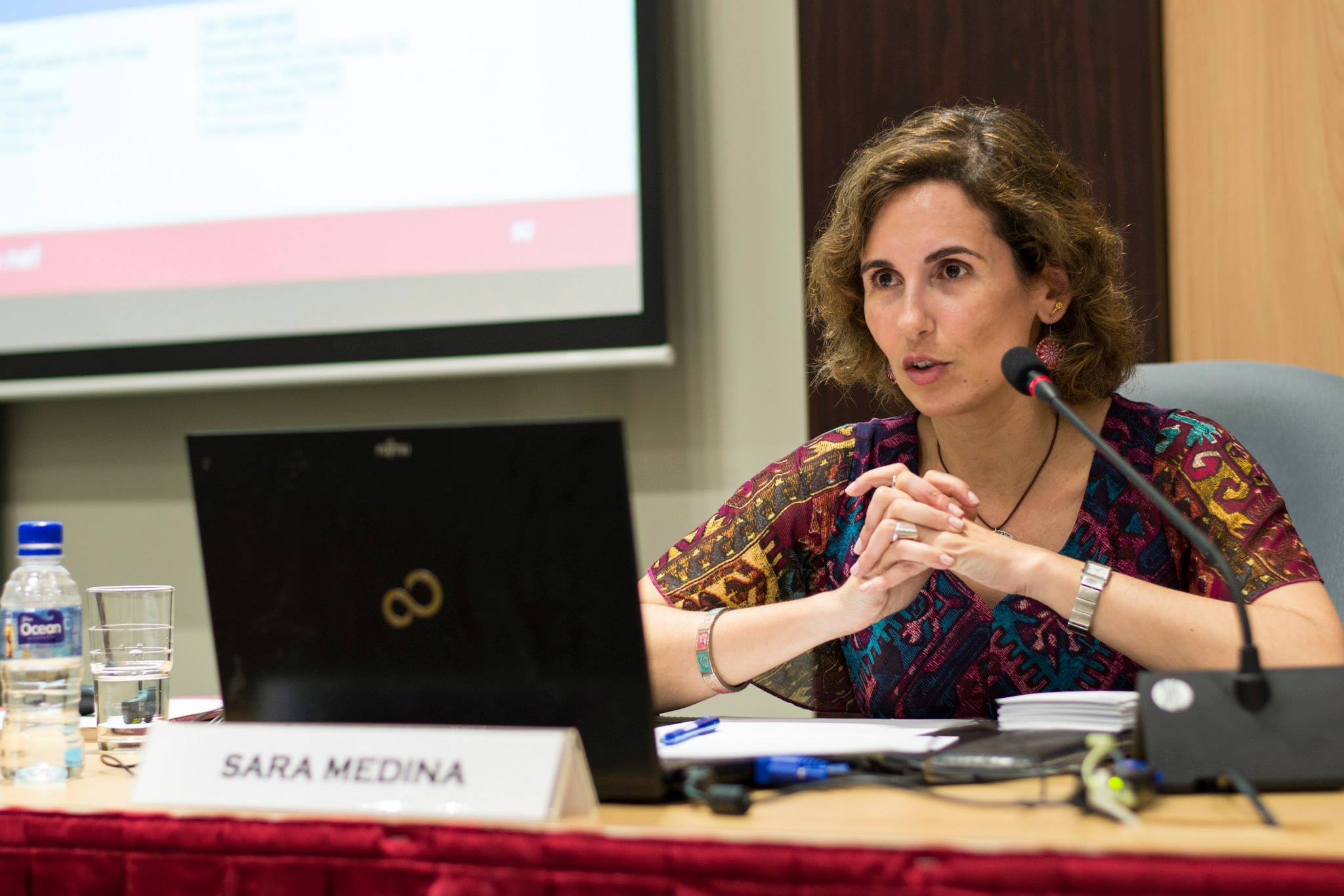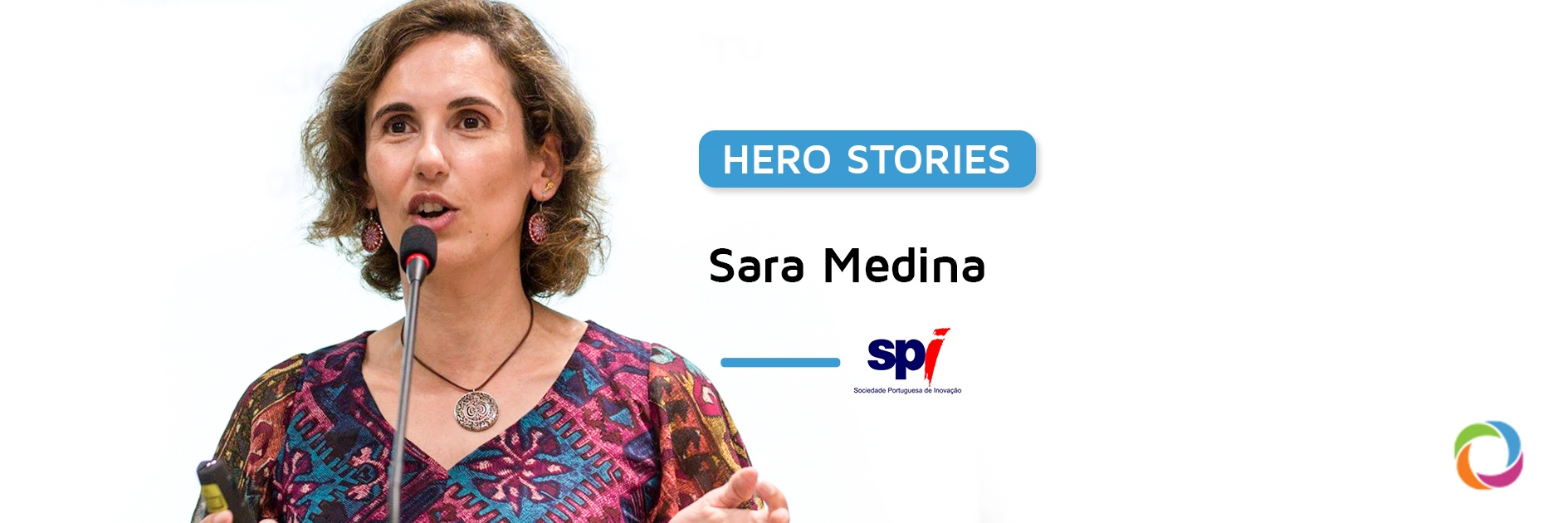Driven by her passion for diversity, Sara Medina could not imagine herself working in an area that was not connected to a challenging multicultural environment. The Sociedade Portuguesa de Inovação (SPI), where Sara Medina is one of the Members of the Board, offers the possibility to develop and implement diverse projects all over the world. SPI is a consulting firm that relies on an excellent understanding of the public and private sectors, of the context, and of their clients’ needs by fostering innovation and competitiveness.
Sociedade Portuguesa de Inovação is a private consulting company created in 1996 as an active centre of national and international networks connected to the research and innovation sectors. SPI has become a leading promoter of linkages between national and international public and private organizations/companies/S&T institutes. SPI has coordinated and provided expert support on projects based in Europe, Asia, North America, South America, Southeast Asia, and Africa. Currently, SPI has 85 full-time staff located in the various offices of the company in Portugal, Spain, China, the USA and with an affiliated office in Belgium (Brussels) through the European Business & Innovation Centre Network (EBN). SPI also has established extensive professional and business networks in Brazil and Angola.
“Our services are designed for start-ups to large companies and for universities and research institutes to business incubators, associations, and municipalities. Our expertise encompasses dealing with the European Commission, the World Bank, the African Development Bank, the Inter-American Development Bank, and other donors. We have consultants from different backgrounds and nationalities working for us: China, the USA, Nepal, Indonesia, African, European, and Latin American countries.”
“In terms of innovations, we don’t actually produce any ourselves, but we enable the functioning of the bridge between many types of organizations, undertaking the research and conducting the projects. For example, ENRICH in China started as a Horizon 2020 project, financially supported by the European Commission from 2017 to 2020. ENRICH in China offers unique services to European research, technology, and business organisations, connecting them to the Chinese market, including soft-landing services through the large network of Soft-Landing Zones and Regional Hubs in China. These organizations based in China provide support services and incubator spaces to European stakeholders willing to enter the Chinese market and help them to communicate with professionals from China, for example, in order to collaborate and help them to get all the local support they need. Our success stories of linking companies from Germany or Bulgaria with businesses from China to form valuable partnerships have resulted in real evidence.”
“The most interesting aspect is the diversity”, Sara Medina confessed. This is what keeps her engaged on projects as she tries to take the results to the next level in terms of professionalism and innovation. Doing business in Asia involves strong ethics and a resolve to succeed taking into account many variables, as Sara mentioned.
“We were aware that starting a business in Asia would involve establishing a physical office in China and having Chinese consultants connected to our projects. This allows us to develop different projects in Asia but we are interested in expanding our presence. We also have many activities in South-East Asia, a project we started in collaboration with the European Commission, that allowed me to travel to Singapore, Malaysia, the Philippines, and Indonesia and begin to develop new partnerships. Examples of these Asian and Southeast Asian projects include ENRICH in China, SEA IPR SME Helpdesk, SENET, 5G-DRIVE, DragonStar Plus, YAKSHA, SEA-EU-NET II, PACE-NET Plus, and many others.”

“Business interaction goes beyond setting ambitious goals. A partnership should rely on confidence and mutual respect”, Sara goes on to say as she describes the principles that guide her professional path.
“You need to be honest and simple in order to collaborate with people in Asia, they are able to detect if you have something to hide or if you consider yourself to be superior and maybe also need to be a person who likes to interact with different cultures. It is really important to adjust to people in order to understand what they are like, how they feel. You show respect and build the trust of people belonging to different cultures. My Master’s degree and interactions with students all over the world increased my interest in multiculturalism which pushed me to later begin my Ph.D. in the USA (the University of Florida). A diversified experience in different countries enabled me to think outside the box, to be flexible, and intervene quickly. These experiences have really helped me to develop personally and professionally.”
The pandemic brought changes that people and businesses were not ready to embrace. SPI is no exception even though the team succeeded in continuing with their work and continuously developing the company.
“We had to make made some adjustments. Due to the nature of our activities and collaboration projects, several meetings and discussions already took place virtually. Even the fact that SPI has its headquarters in Portugal and various offices across the world, working with different time zones was already a reality. Nevertheless, conference calls totally replaced physical meetings, which forced us (and everyone) to adapt to the circumstances. The pandemic stopped us from traveling, which was part of our work, but it didn’t change our work quality, ethics, and principles.
However, our work was already partially remote so, when the pandemic started, we just needed to improve and organize certain details related to this aspect as we have many offices in other parts of the world. We also needed to make sure that things were going well. The pandemic just stopped us from traveling, but it didn’t change our work process.”
Analysing the repercussions of the pandemic, naturally, entrepreneurs talk about future projects their businesses will be involved in.
“We are going to continue to develop our interesting projects. Our next focus will be expanding our team and bringing more people to the table with their expertise. Part of the near future is building a hotel in south Portugal which will be strongly linked to the tourism and innovation sector but also having in mind the valorization of the region and job creation. Of course, we are going to continue to grow internationally, working with international donors and agencies, investing, and enlarging our experience in new countries. For example, we are pursuing the development of some interesting projects in Africa, which is a market significantly increasing among SPI’s activities. From a personal point of view, I will continue to contribute to SPI.”
The story of Sara Medina, a Member of the Board of Sociedade Portuguesa de Inovação, is one more episode in the Hero Stories series of articles. Follow the impressive stories of those people who inspire on DevelopmentAid. Stay tuned to the DevelopmentAid articles and discover inspiring personalities.

